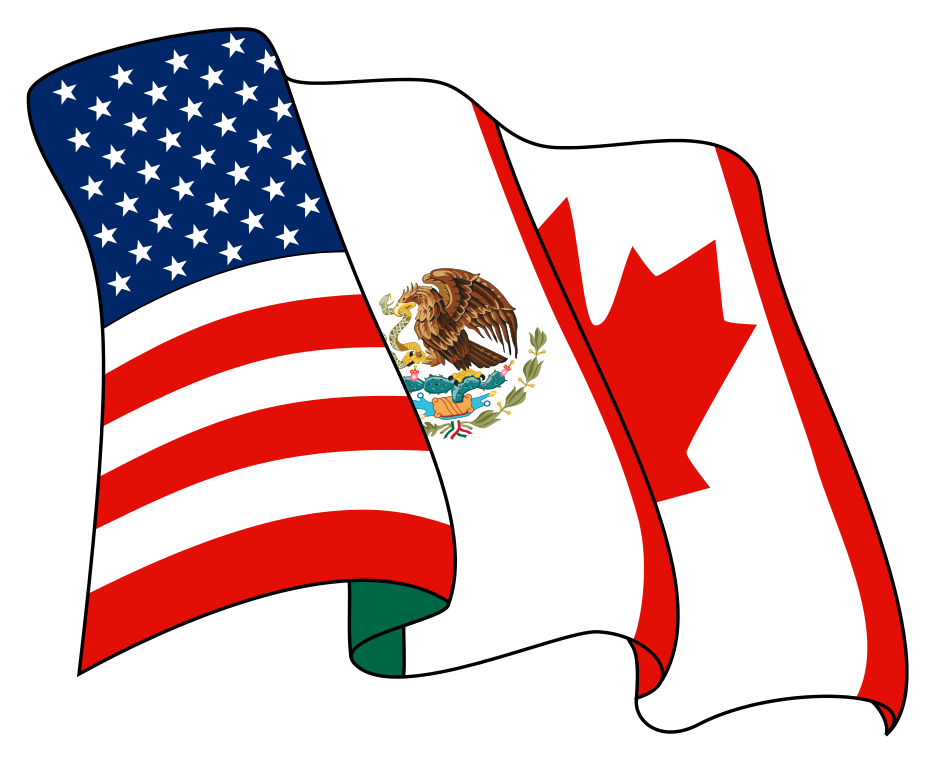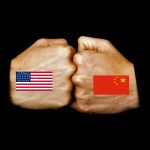Steel & Aluminum Tariffs Lifted Between U.S., Canada, & Mexico

While the tariff situation between the U.S. and China has been heating up, the tariff situation between the U.S., Canada, and Mexico has been cooling off.
On Friday (May 17th, 2019), the Office of the U.S. Trade Representative (USTR) announced the lifting of Section 232 tariffs on steel and aluminum imported from Canada and Mexico.
Not just that, but Canada and Mexico also agreed to remove all retaliatory tariffs they’d imposed on U.S. goods.
The U.S. did reserve the right to reinstitute the tariffs should there be a surge in steel and aluminum imports from Canada or Mexico. However, Canada and Mexico’s retaliations, should these tariffs be re-imposed, would be limited to steel and aluminum products instead of goods spanning a wide array of industries.
President Trump’s administration is especially concerned with Chinese steel and aluminum dumping coming through the United States’ North American neighbors. In joint statements the United States made with each Canada and Mexico, the countries announced agreement to implement effective measures to ensure subsidized or dumped steel and aluminum (as is a common Chinese practice) does not get exported to the United States via its neighbor’s territories.
Obviously, this removal of tariffs is welcome news for U.S. shippers who import and export from and to Canada and Mexico. It also shows President Trump’s willingness to remove tariffs upon reaching trade deals with other countries, which gives a sliver of hope that the tariffs on Chinese goods could be removed, if only the U.S. and China can actually reach a trade deal.
Here is Friday’s press release from the USTR about Section 232 tariffs on Canada and Mexico:
Washington, DC –Today, the United States announced an agreement with Canada and Mexico to remove the Section 232 tariffs for steel and aluminum imports from those countries and for the removal of all retaliatory tariffs imposed on American goods by those countries. The agreement provides for aggressive monitoring and a mechanism to prevent surges in imports of steel and aluminum. If surges in imports of specific steel and aluminum products occur, the United States may re-impose Section 232 tariffs on those products. Any retaliation by Canada and Mexico would then be limited to steel and aluminum products. This agreement is great news for American farmers that have been subject to retaliatory tariffs from Canada and Mexico. At the same time, the Agreement will continue to protect America’s steel and aluminum industries.
Here’s the joint statement between the U.S. and Canada:
After extensive discussions on trade in steel and aluminum covered by the action taken pursuant to Section 232 of the Trade Expansion Act of 1962 (19 U.S.C. §1862), the United States and Canada have reached an understanding as follows:
- The United States and Canada agree to eliminate, no later than two days from the issuance of this statement:
a. All tariffs the United States imposed under Section 232 on imports of aluminum and steel products from Canada; and
b. All tariffs Canada imposed in retaliation for the Section 232 action taken by the United States (identified in Customs Notice 18-08 Surtaxes Imposed on Certain Products Originating in the United States, issued by the Canada Border Services Agency on June 29, 2018 and revised on July 11, 2018).
The United States and Canada agree to terminate all pending litigation between them in the World Trade Organization regarding the Section 232 action.
The United States and Canada will implement effective measures to:
a. Prevent the importation of aluminum and steel that is unfairly subsidized and/or sold at dumped prices; and
b. Prevent the transshipment of aluminum and steel made outside of Canada or the United States to the other country. Canada and the United States will consult together on these measures.
The United States and Canada will establish an agreed-upon process for monitoring aluminum and steel trade between them. In monitoring for surges, either country may treat products made with steel that is melted and poured in North America separately from products that are not.
In the event that imports of aluminum or steel products surge meaningfully beyond historic volumes of trade over a period of time, with consideration of market share, the importing country may request consultations with the exporting country. After such consultations, the importing party may impose duties of 25 percent for steel and 10 percent for aluminum in respect to the individual product(s) where the surge took place (on the basis of the individual product categories set forth in the attached chart). If the importing party takes such action, the exporting country agrees to retaliate only in the affected sector (i.e., aluminum and aluminum-containing products or steel).
Here’s the joint statement from the U.S. and Mexico:
After extensive discussions on trade in steel and aluminum covered by the action taken pursuant to Section 232 of the Trade Expansion Act of 1962 (19 U.S.C. §1862), the United States and Mexico have reached an understanding as follows:
The United States and Mexico agree to eliminate, no later than two days from the issuance of this statement:
a. All tariffs the United States imposed under Section 232 on imports of aluminum and steel products from Mexico; and
b. All tariffs Mexico imposed in retaliation for the Section 232 action taken by the United States (identified in the Decrees published in Mexico’s Official Gazette on June 5, 2018 and August 17, 2018).
The United States and Mexico agree to terminate all pending litigation between them in the World Trade Organization regarding the Section 232 action.
The United States and Mexico will implement effective measures to:
a. Prevent the importation of aluminum and steel that is unfairly subsidized and/or sold at dumped prices; and
b. Prevent the transshipment of aluminum and steel made outside of Mexico or the United States to the other country. Mexico and the United States will consult together on these measures.
The United States and Mexico will establish an agreed-upon process for monitoring aluminum and steel trade between them. In monitoring for surges, either country may treat products made with steel that is melted and poured in North America separately from products that are not.
In the event that imports of aluminum or steel products surge meaningfully beyond historic volumes of trade over a period of time, with consideration of market share, the importing country may request consultations with the exporting country. After such consultations, the importing party may impose duties of 25 percent for steel and 10 percent for aluminum in respect to the individual product(s) where the surge took place (on the basis of the individual product categories set forth in the attached chart). If the importing party takes such action, the exporting country agrees to retaliate only in the affected sector (i.e., aluminum and aluminum-containing products or steel). In assessing whether there has been a surge in steel imports, the United States will consider that new investment in the United States may require an additional 225,000 metric tons of billet from Mexico; Mexico will consider that new investment in Mexico may require an additional 200,000 metric tons of cold-rolled steel from the United States.




